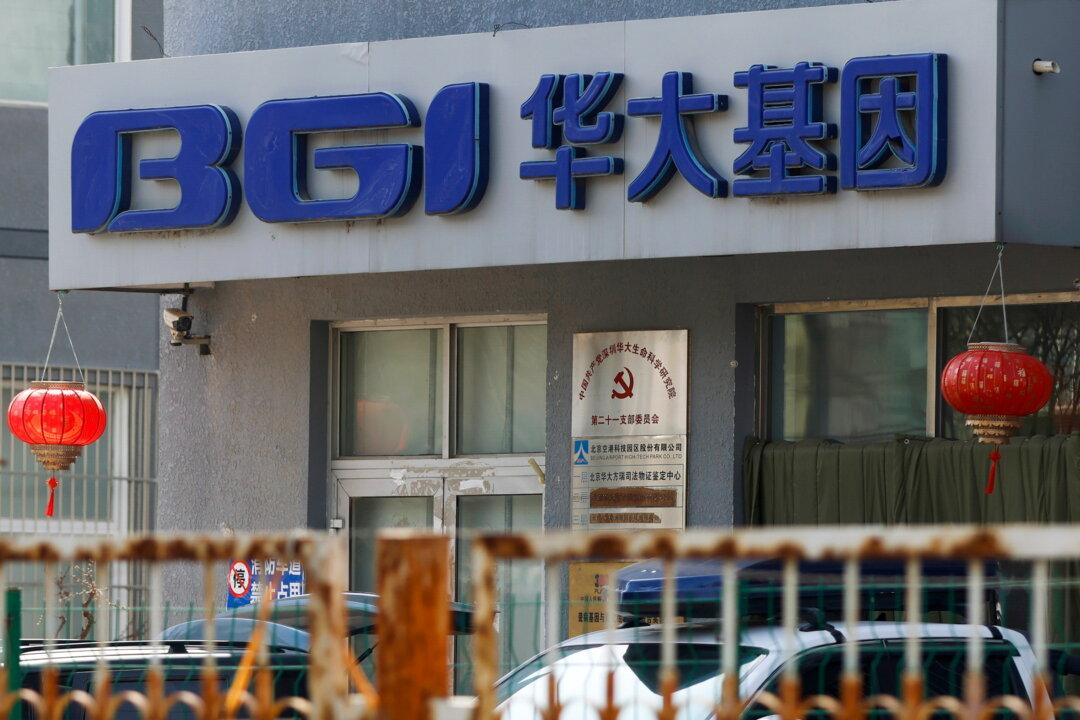The UK government is assessing the national security risk of all Sino–British research and innovation links, a minister said on March 8.
Responding to concerns raised by Liberal Democrat MP Alistair Carmichael about national security risks in genomics, particularly in collaborating with Chinese genomics company BGI, Science Minister George Freeman said that MPs are “well aware that we have to manage such risks properly.”
Freeman said he had commissioned and just received a detailed assessment of “all the China research and innovation links across our system” from UK Research and Innovation, the new government hub for innovation.
“We did the same last year for Russia,” he said.
Freeman said he'll pore over the assessment with officials and Security Minister Tom Tugendhat, “looking in particular at some of the actors such as BGI that we know to be aggressive in their international acquisition of intellectual property.”
It comes after the U.S. Commerce Department last week blacklisted a number of Chinese entities, including three BGI Group subsidiaries—genetics company BGI Research, biotechnology company BGI Tech Solutions Co., and Forensics Genomics International—over their alleged involvement in military programs and the repression of ethnic minorities in China.
Freeman also claimed that during the visit of Chinese leader Xi Jinping in 2015, when he was the parliamentary under secretary for life sciences, he had been “prepared to pay tribute to the work of BGI,” but officials pointed out that “at that point, Genomics England was suffering several hack attacks from BGI each week.”

But the government said there is “no evidence of attempted hacking of Genomics England in 2014 from BGI.”
“However, like most organisations they do receive regular attempts to access their systems, for which there are appropriate defences in place. No successful breaches have occurred,” a government spokesperson said on March 10 in an email to The Epoch Times.
BGI Genomics was founded in 1999 to represent China in the “Human Genome Project,” which it hailed as one of the greatest scientific projects of the 20th century, along with the Manhattan Project and Apollo Program.
In 2008, the world-leading genomics company also took part in the “1,000 Genomes Project,” another global collaboration project that created a catalogue of common human genetic variation.
According to the BGI website, it has continued exchanges with international partners in recent years, visiting 24 countries and areas last year, including the UK, and had exchanges with 35 top universities and research institutes to push forward the global initiative on SpatioTemporal Omics that it launched in May 2022 to accelerate research in areas such as specific evolution, fetal development, and pathology.
But the company is also alleged to be involved in Chinese military projects and human rights violations—allegations that it has denied.
The document noted that information also indicates that “the actions of these entities concerning the collection and analysis of genetic data present a significant risk of diversion to China’s military programs.”
BGI didn’t immediately respond to The Epoch Times’ request for comment. In a previous statement in response to the U.S. export ban, BGI stated that it disagrees with the decision.
“We believe the BIS’s [Bureau of Industry and Security’s] decision may have been impacted by misinformation and we are willing and able to clarify. BGI Group’s work strictly abides by local, regional, and global moral and ethical standards, and adheres to all required laws and regulations,” the company said in a statement.
“BGI Group does not condone and would never be involved in any human-rights abuses. None of BGI Group is state-owned or state-controlled, and all of BGI Group’s services and research are provided for civilian and scientific purposes.”





